L’édition 2024 de la compétition Youth Hacking 4 Freedoom démarre
jeudi 16 novembre 2023 à 00:00L’édition 2024 de la compétition Youth Hacking 4 Freedoom démarre
Les inscriptions sont désormais ouvertes pour l’édition 2024 de Youth Hacking 4 Freedom, le concours de codage destiné aux jeunes Européens. Ce concours donne aux adolescents la possibilité de coder leur propre projet - seul ou en équipe - de se faire de nouveaux amis dans toute l’Europe et de gagner jusqu’à 4 096 euros !

Après deux éditions réussies, Youth Hacking 4 Freedom, le concours de codage de la Free Software Foundation Europe pour les jeunes Européens, ouvre les inscriptions pour sa troisième édition. YH4F 2024 démarre le 7 décembre avec un événement en ligne pour répondre aux questions des participants avant que la période de codage ne commence en janvier 2024. Plus de 10 000 euros en espèces seront attribués aux six gagnants de l’édition 2024. 4096 € pour la première place, 2048 € pour la deuxième place, 1024 € pour la troisième place et des prix spéciaux seront distribués. En outre, tous les participants qui soumettent un projet recevront le prix de participation YH4F.
L’objectif de ce concours est de rassembler des jeunes de toute l’Europe intéressés par le codage, quel que soit leur niveau actuel en la matière. Pendant six mois, les participants - qui doivent être âgés de 14 à 18 ans au moment de l’inscription - auront la possibilité de travailler sur leur propre projet de logiciel libre, seuls ou en équipe.
Les participants doivent s’inscrire pour participer au concours qui débutera le 7 décembre par un événement en ligne expliquant les détails du même. Cet événement de lancement est une excellente occasion pour tous ceux qui pourraient avoir des doutes quant à leur participation d’obtenir des réponses à leurs questions et de comprendre le fonctionnement de ce concours et les raisons pour lesquelles toute personne, quelles que soient ses compétences en matière de codage, est plus que bienvenue pour y participer.
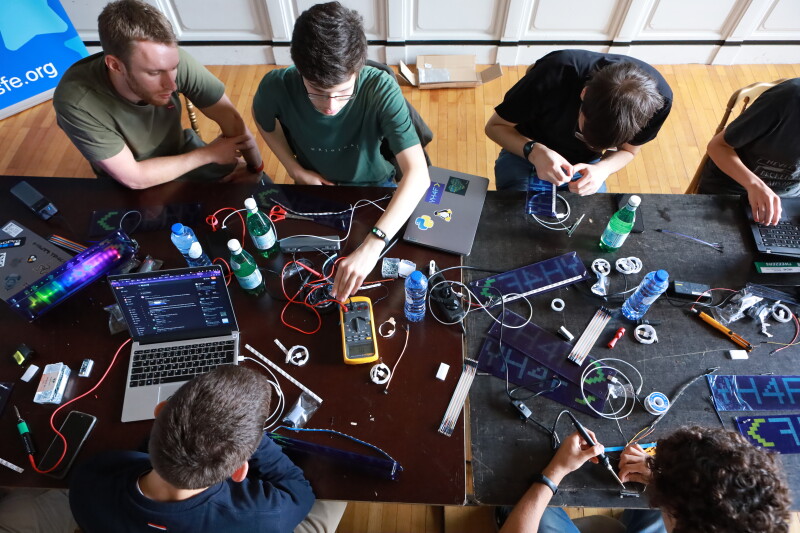 Les participants de YH4F 2023 expérimentants.
Les participants de YH4F 2023 expérimentants.
Lorsque la période de codage débutera le 1er janvier 2024, les participants auront la possibilité de travailler sur leurs projets pendant six mois, jusqu’au 30 juin 2024, date à laquelle ils devront soumettre leurs projets. Une inscription tardive est possible, de même qu’une modification de l’idée originale du projet, mais la période de codage ne sera pas prolongée.
Au cours de ces six mois, les participants auront également l’occasion de rencontrer d’autres jeunes Européens qui partagent leurs intérêts et, très probablement, leurs défis en matière de codage. Des réunions mensuelles facultatives en ligne seront organisées pour guider les participants tout au long de la période de codage et leur apprendre à mener à bien un projet de logiciel libre, à tirer parti des expériences des participants précédents et à obtenir des conseils de la part des membres expérimentés de notre jury.
En juillet et août 2024, un jury international d’experts techniques examinera les projets et les gagnants seront notifiés en septembre 2024 et officiellement annoncés lors du week-end de la cérémonie de remise des prix à Bruxelles en octobre 2024.
Èvenement d’ouverture – 7 December
Lors de l’événement d’ouverture en ligne du 7 décembre, les organisateurs du concours YH4F expliqueront en détail ce qui est attendu des participants et répondront à leurs questions. En outre, les participants auront la possibilité de poser des questions aux participants des éditions précédentes, qui expliqueront leur expérience dans le cadre de ce concours.
Sur le site web du YH4F vous trouverez de plus amples informations sur l’inscription, l’événement d’ouverture et le concours en général. Si vous avez des questions, vous pouvez toujours nous contacter à l’adresse contact@fsfe.org.
Sponsor 2024 Youth Hacking 4 Freedom
Le concours 2023 a pu être organisé grâce au financement généreux de Reinhard Wiesemann et du Linuxhotel GmbH.
Si vous souhaitez sponsoriser l’édition 2024 ou les éditions futures de YH4F, veuillez nous contacter à l’adresse contact@fsfe.org.
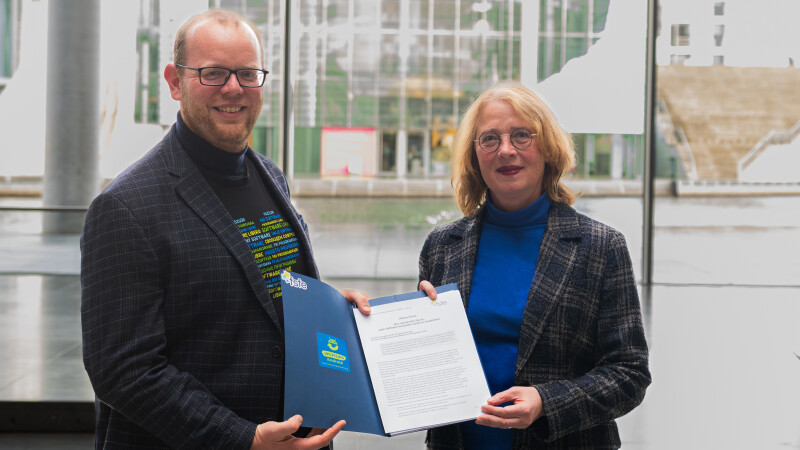
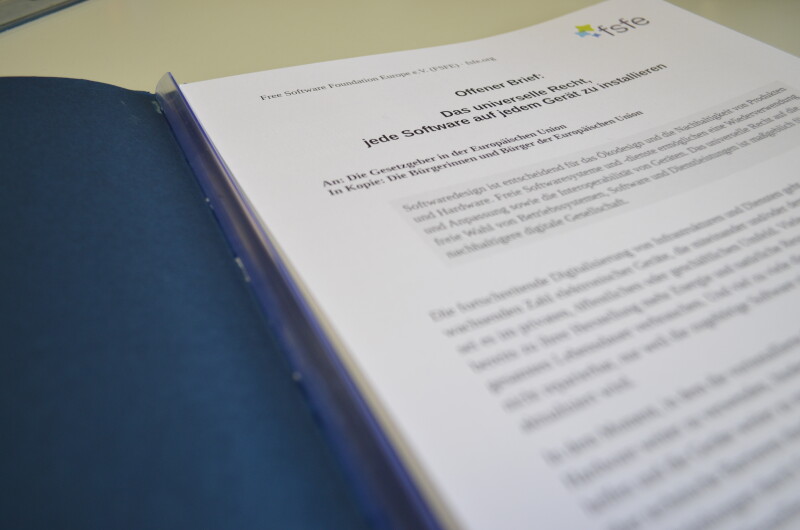
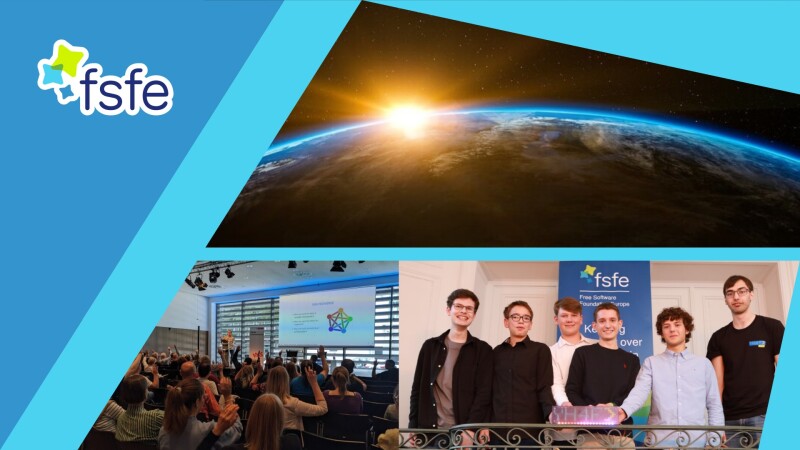
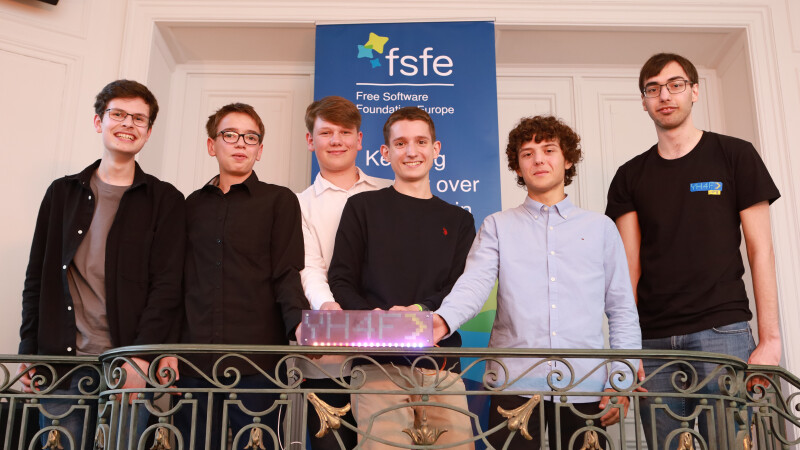
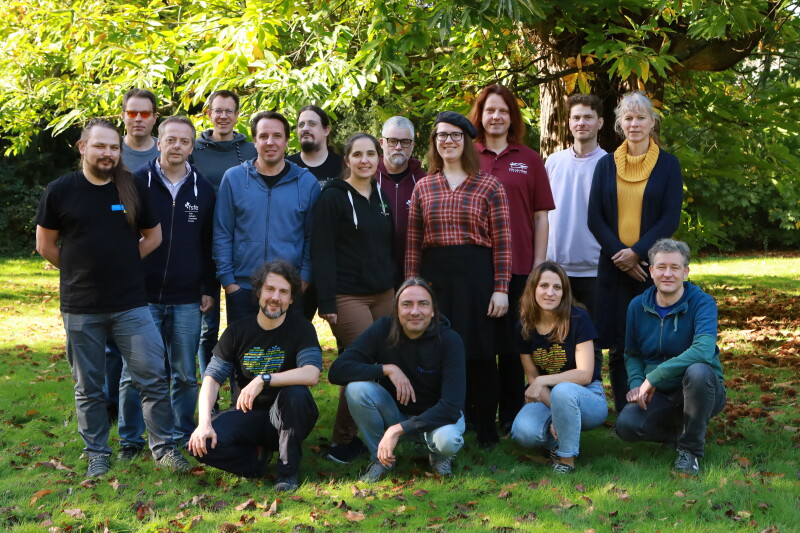 Meeting of the General Assembly
Meeting of the General Assembly